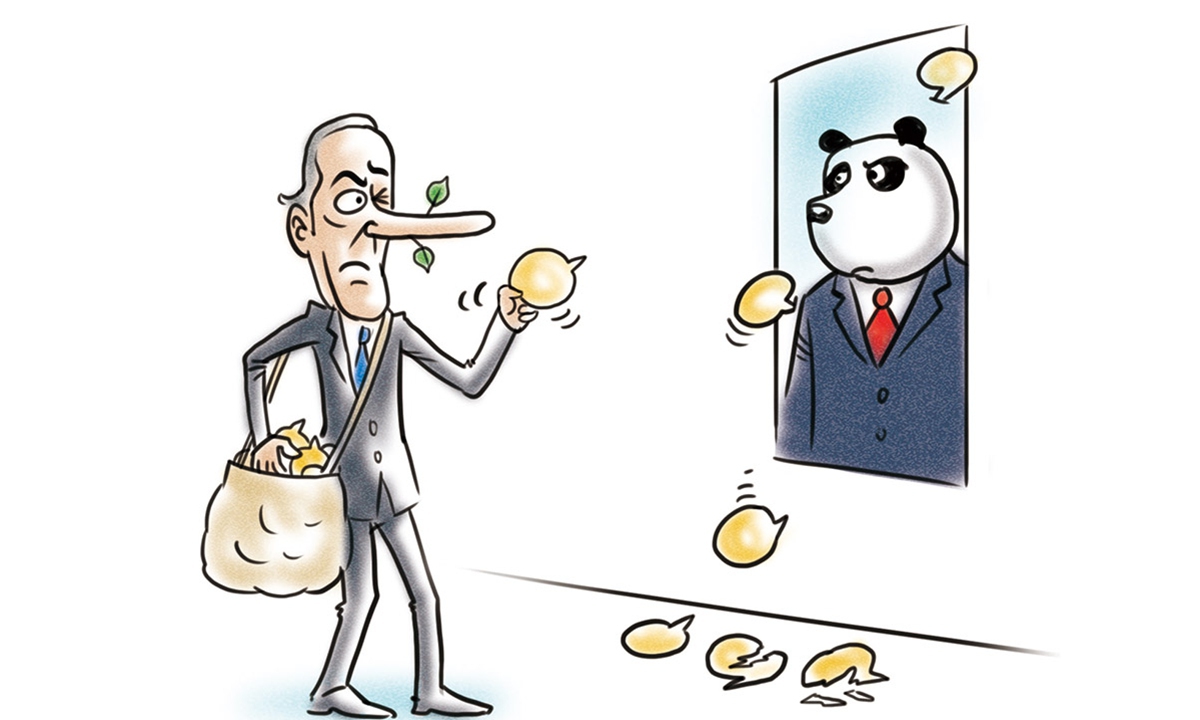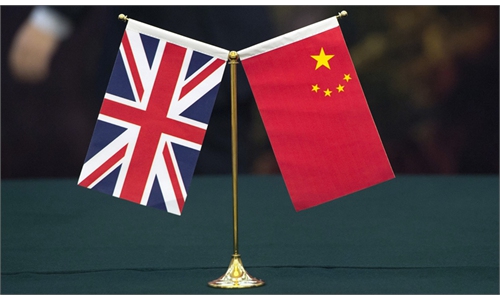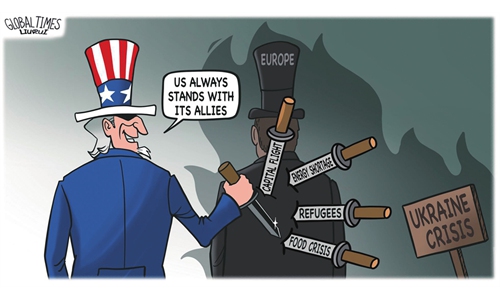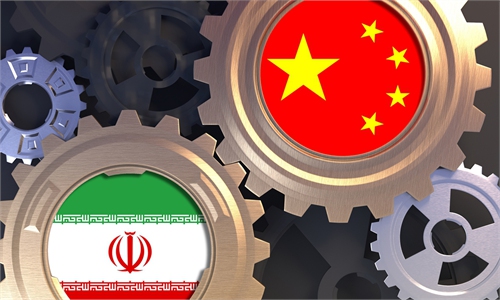
Illustration: Liu Rui/GT
Recent signs indicate that Europe is undergoing a period of political change filled with uncertainty. Against this backdrop, maintaining stability in relations with China, a key partner of the EU, should be among priorities. Yet, some EU officials continue to focus on targeting Beijing and tarnishing its policy toward Europe. It is important for them to realize that adopting an "Americanized" approach to China will only lead to unnecessary geopolitical tensions between the two sides.
During a panel discussion at the World Peace Forum on Sunday, EU Ambassador to China Jorge Toledo claimed that China-EU relations are "in a difficult moment" and have become "more tense." He defended the EU's decision to impose punitive tariffs on Chinese electric vehicles (EVs), while criticizing China over issues such as bilateral people-to-people exchanges as well as the Russia-Ukraine conflict.
Toledo's remarks, in the face of the EU currently waving its tariff stick to frantically suppress China's EVs, seem very absurd. Today, China and Europe have seen some twists and turns in developing bilateral ties, but some EU officials lack objective and rational understanding of such obstacles. Shifting the blame on China will not help the two sides to resolve their differences.
Some European politicians believe that it is because of China's change in EU policy that Europe was "forced to" seek a different approach when dealing with China. But the fact is that China's position on advocating and promoting the development of China-EU relations in all aspects, including people-to-people exchanges, has been consistent.
China has always attached great importance to ties with Europe, be it from the level of general strategy guidelines or concrete policies. Chinese President Xi Jinping just finished a visit to Europe last month, where he highlighted the Chinese side's willingness to engage in dialogue and cooperation with Europe. Last week, he reemphasized this point in a congratulatory message to European Council President-elect Antonio Costa. Earlier this month, China began the implementation of a unilateral visa-free policy for citizens from 15 countries, most of which are EU members. These positive signals are strong enough to debunk the smearing against China's attitude toward Europe.
Over the past few years, Europe's perception of China has become increasingly negative. On the one hand, some individuals within the Europe hype up that Beijing is supporting Moscow in the Russia-Ukraine conflict, hindering the normal development of China-EU relations. However, in fact, Europe wants to impose its political principles and positions on China regarding the Ukraine issue, which is unacceptable to Beijing.
On the other hand, under US' strong incitement, there is a tendency of "Americanizing" economic and trade policies in Europe. Although currently the EU may not dare to go too far, Europe's economic coercion against China is detrimental to the bilateral ties and the continent's own economic interests.
And this is only one part of how the US factor has affected China-EU relations. As Washington strengthens its alliance with Europe, its hysteria over China has blinded the eyes of some European policymakers. As a result, the EU now lacks intelligent, capable and visionary politicians. The US will continue regarding China as its main strategic competitor, no matter who ends up as the next president, but this doesn't mean the EU should carry on the path of blindly following the US and entirely relying on it over developing a China policy.
Gao Jian, a senior fellow of Beijing Club for International Dialogue at China Public Diplomacy Association, told the Global Times that Europe needs to start to look at realities and problems in a truly objective manner, rather than indulging in its own imagination and fantasy. It should take actions to strive for strategic autonomy instead of just aimlessly calling for it, he added.
In the past few years, despite challenges, close cooperation between China and the EU in the economic and trade fields is enough to support the steady development of bilateral relations. From the point of view of economic interests, Europe still needs China significantly and vice versa. The deepening of China-EU cooperation can realize great potential and bring more benefits to both sides; China has long realized this, so should more European people, especially politicians.



